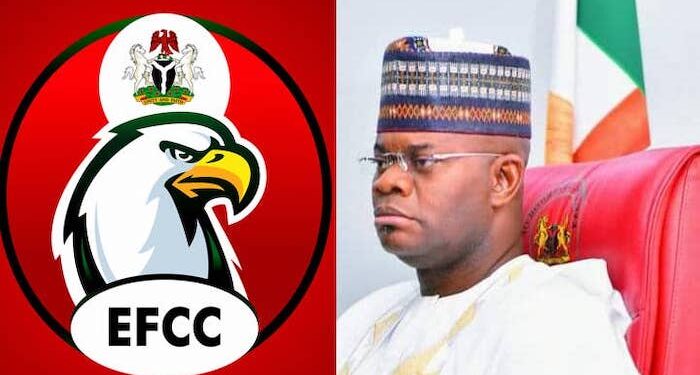The Supreme Court of Nigeria is set to hear a significant lawsuit filed by 16 state governors challenging the constitutionality of the Economic and Financial Crimes Commission (EFCC) Establishment Act. The hearing is scheduled for October 22.
The lawsuit, which originated from the Kogi State Government through its Attorney General, argues that the EFCC Act, along with two other legislative frameworks, was enacted without the requisite constitutional approval from a majority of the state Houses of Assembly.
A seven-member panel of justices, led by Justice Uwani Abba-Aji, has agreed to hear the case after allowing the states to join as co-plaintiffs and granting permission for the consolidation of the lawsuit.
The participating states include Ondo, Edo, Oyo, Ogun, Nassarawa, Kebbi, Katsina, Sokoto, Jigawa, Enugu, Benue, Anambra, Plateau, Cross River, and Niger.
Together, they contend that any law contradicting the Constitution is void, emphasizing that the EFCC Act violates constitutional provisions outlined in Section 12 of the amended 1999 Constitution.
In their filing, the governors cited a prior Supreme Court ruling in the case of Dr. Joseph Nwobike vs. Federal Republic of Nigeria, which established that the United Nations Convention against Corruption had been improperly incorporated into the EFCC Act without proper legislative consent. They argue that the 2004 enactment of the law failed to adhere to necessary constitutional protocols.
Kogi’s Attorney General, Abdulwahab Mohammed, SAN, informed the court that additional states have expressed interest in joining the lawsuit as co-plaintiffs. “It is for this honourable court to tell us how to proceed, my lord,” he stated, noting that approximately 13 states wish to join as co-plaintiffs while two seek consolidation.
The outcome of this case could have significant implications for the EFCC’s operations and the legal frameworks governing financial crimes in Nigeria. As the scheduled hearing approaches, the legal community and public are keenly observing the developments in this high-stakes constitutional challenge.



